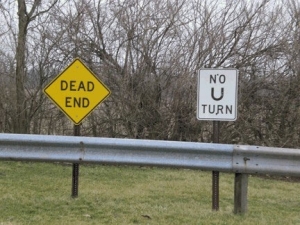
Keri, how would you sum up what you write about, mainly; and why it has been important to you?
I write about the connection between faith and real life. I try to give people practical guidance on spiritual growth, on spiritual practices that can help form them into the image of Christ. And I believe the most important step toward growth, for American Christians, anyway, is to slow down and simplify. So many of my books focus on those themes. That’s been important to me because I know how it feels to be going through the motions, wanting more spiritulally. I see how people try to get busy for God, and they don’t realize how counterproductive that is. I want to help those people find a way to grow by simplifying.
Tell us the books you’ve written.
God’s Whisper in a Mother’s Chaos (IVP, 2000) is a book for parents of young children who are wondering where their spiritual life went. I wrote it when my own kids were one and three, so it’s very honest. Readers tell me they love this book because they realize they are not alone in the struggles of parenting.
The Garden of the Soul (IVP, 2002) compares the growth of our souls with the growth in a garden. It introduces spiritual disiciplines in a simple way.
Breathe (Revell, 2005) is about how the pace of our lives affects us spiritually. It tells stories of real women who are moving toward Sabbath Simplicity, and gives practical help on slowing, simplicity and Sabbath-keeping, which are foundational spiritual practices.
Listen (Jossey-Bass, 2006) is about hearing God, through our circumstances, other people, and in time with God.
Oxygen (Revell, 2008) is a devotional that has you read one gospel passage each week, and reflect on it using various spiritual practices.
Rest (Zondervan, 2009) is about how to live in Sabbath Simplicity. it looks at the Sabbath command, and what Jesus said about Sabbath, and offers practical, guilt-free ways to embrace Sabbath-keeping as a lifestyle. Readers love this book because it offers freedom and absolutely refuses to get legalistic.
Simple Compassion (Zondervan 2009) will release this September. It’s a 52-week devotional, with one 3-to 4 page entry per week. It’s about how to make a difference in your neighborhood and the world. it looks at verses that talk about God’s concern for the poor, for his heart for compassion and justice. It’s an ideal resource for small groups.
If there was one sentence, or short message, you could convey to the world that would be remembered always, what would it be?
Slow down, and listen to the voice of love, (God’s voice) which says that grace is sufficient.
Why do you think people don’t associate God and spiritual life with rest or enjoyment?
Our understanding of God is skewed by our upbringing, our culture. We often think God is strict or mean–which is so not true. Or we think we have to earn God’s favor–and earning and resting don’t go together. But I’ve found that only when I stop running do I actually experience the unconditional love of God, and the amazingness of grace.
Do you have any tips or ideas for getting better at seeing God in this way?
Start slowing your life down, create some space for God. One day a week, just stop your striving. Really, this is something you can’t just think about, you have to do it to experience it.
What are a few keys to “doing Sabbath” most beneficially?
The key is to remember that building a Sabbath practice is a long-term project. It’s a journey, and you do it slowly, over time. My book has a lot of practical help, but the key is to begin where you are. If you are a very hurried person, your first step will be different than someone who is already a little more laid back. And also, listen to God’s leadings. Ask others what they do, but remember that you don’t have to do the exact same thing. A good way to start is to ask, “what do I want to be free of?” And then refrain from doing that thing (maybe it’s laundry, or grocery shopping) on the Sabbath. And then, ask “what brings me joy?” And find a way to engage in that on Sabbath (maybe it’s worship, or gardening, or just hanging out with your kids).
What lesson, or lessons, have you had to learn the hard way?
This column is not long enough for me to answer that question But here’s one of the many: don’t run ahead of God. When I’ve tried to steer my life in the direction I thought it should go, I ended up on a major detour. God knows the way, and I just need to follow.
What’s on the horizon for you?
My next gig is at the Karitos Arts Festival in Bolingbrook IL July 16-18)
Thank you, Keri! This book was a wonderful read, and brought home a lot of ideas I was already pursuing. It’s good to comprehend just how much we can enjoy God, and actually, how he made us for just that. It seems we get in our own way!
Visitors, your comments are welcome, and Keri, chime right in, too!
Have you authored a book, or enjoyed a book with themes similar to that featured here at Life as Prayer? If so, let me know.



 Info. gathered from:
Info. gathered from: